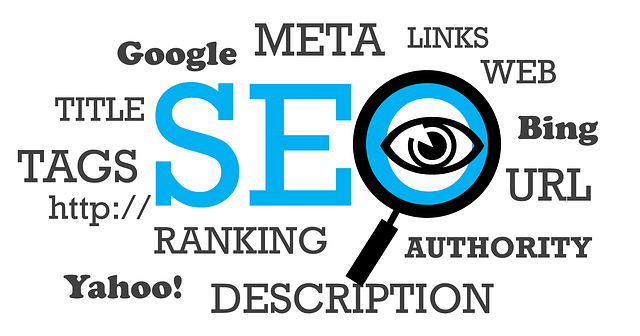Practical SEO workshops equip professionals with skills to adapt to real-time SEO optimization, enhancing website rankings in a dynamic digital landscape. These workshops teach hands-on techniques like optimizing web speed, content for voice search, and schema markup. Real-time SEO allows businesses to stay relevant by optimizing for trending topics, news events, and seasonal trends. Monitoring key metrics is vital for adjustments; tools like Google Search Console and SEMrush provide instant insights into search trends and competitor research. On-page optimization techniques, technical SEO, and data analysis are crucial for high rankings. Case studies demonstrate successful real-time SEO campaigns across sectors. Effective strategies involve keyword research, content integration, regular updates, mobile optimization, and technical considerations like site speed and security. Continuous learning and data-driven decisions are essential in the evolving digital marketing landscape.
In today’s fast-paced digital landscape, real-time SEO optimization (RTSEO) is no longer a luxury but a necessity. This dynamic approach ensures search engine rankings adapt instantly to user behavior and trends. Our comprehensive guide, packed with practical SEO workshops, delves into the core concepts of RTSEO, from understanding its fundamentals to leveraging key metrics and tools for efficient keyword tracking. We explore successful case studies, uncover best practices, and shed light on common mistakes to avoid, empowering you to optimize your online presence effectively.
Understanding Real-Time SEO Optimization: The Basics

Real-time SEO optimization is a dynamic approach that involves continuously adapting and improving your website’s search engine rankings based on current trends, user behavior, and algorithm updates. Unlike traditional SEO strategies focused on static content, real-time SEO requires a swift response to changes in the digital landscape. By leveraging advanced analytics tools, marketers can track keyword performance, monitor competitor strategies, and swiftly optimize content for better visibility in search results.
Practical SEO workshops play a vital role in equipping professionals with the skills needed to navigate this dynamic field. These workshops provide hands-on training on real-time SEO techniques, such as optimizing web pages for speed, structuring content for voice search, and implementing effective schema markup. Participants learn how to stay ahead of algorithm changes, engage with audiences through relevant content, and measure the impact of their efforts using real-time analytics data.
Benefits of Implementing RTSEO Strategies

Implementing real-time SEO (RTSEO) strategies offers a plethora of advantages for businesses aiming to stay ahead in the digital landscape. One of the key benefits is immediate visibility; by optimizing content and keywords in real-time, websites can quickly rank higher on search engines, ensuring their information is seen by relevant audiences at the exact moment they’re searching. This dynamic approach allows businesses to capitalize on trending topics, news events, or seasonal trends, giving them a competitive edge over static SEO methods that might take days or weeks to show results.
Additionally, RTSEO fosters a data-driven mindset. Through continuous monitoring and analysis of search engine performance, businesses can gain valuable insights into consumer behavior and market trends. This knowledge enables them to make informed decisions, adjust their content strategies, and stay relevant in an ever-evolving digital environment. Practical SEO workshops play a crucial role here, equipping professionals with the skills to implement these strategies effectively and keep pace with the rapid changes in the online world.
Key Metrics to Monitor in Real-Time

In real-time SEO optimization, monitoring key metrics is crucial for immediate adjustments and strategic decisions. Among these, search rankings top the list as they provide a direct reflection of your website’s visibility on search engines. Utilizing tools that offer real-time data on keyword positions helps in identifying fluctuations and understanding the impact of recent changes. Additionally, tracking organic traffic gives insights into how effective your SEO strategies are in attracting visitors.
Other vital metrics include bounce rate and average session duration. A low bounce rate indicates that users are finding relevant content on your site, leading to longer engagement. Monitoring these factors in conjunction with search rankings enables you to host more practical SEO workshops, offering actionable insights for businesses aiming to enhance their online presence and stay ahead of the curve.
Tools for Efficient Real-Time Keyword Tracking

In today’s fast-paced digital landscape, efficient real-time keyword tracking is paramount for successful SEO strategies. Practical SEO workshops equip marketers with valuable tools to stay ahead of the curve. These tools not only provide instant insights into search trends but also allow for dynamic adjustments to content and meta tags. By leveraging real-time data, businesses can quickly optimize their online presence, ensuring their websites remain visible and relevant to target audiences.
One such tool is Google Search Console, which offers a wealth of information on keyword performance, click-through rates, and user behavior. Additionally, specialized SEO software like Ahrefs or SEMrush provides in-depth analytics, including backlink profiles, content gap analysis, and competitor research. These platforms enable marketers to identify high-value keywords, track rankings, and make data-driven decisions, ultimately enhancing the overall SEO optimization process.
On-Page Optimization Techniques for Instant Results

In the dynamic landscape of digital marketing, real-time SEO optimization demands a strategic blend of on-page and off-page tactics. One of the most effective ways to see instant results is through on-page optimization techniques. These practices directly enhance your website’s visibility by improving its relevance and quality in the eyes of search engines. Implementing keyword-rich titles, meta descriptions, and headers is fundamental; these elements act as a roadmap for both users and search algorithms, ensuring your content is easily discoverable.
Practical SEO workshops often emphasize the importance of optimizing images with alt tags, ensuring each visual element tells a story that search engines can understand. Additionally, refining URL structures to be clean, descriptive, and keyword-inclusive boosts navigation and aids in crawling, leading to better indexation and faster results. Remember, on-page optimization is an ongoing process, requiring regular updates and adjustments to stay ahead of algorithm shifts and maintain high search rankings.
Technical SEO Considerations for Real-Time Performance

In the realm of real-time SEO optimization, Technical SEO considerations are paramount for achieving top performance. Websites must be built with a focus on speed and efficiency to cater to today’s fast-paced digital landscape. One practical approach is to optimize site structure and architecture, ensuring proper indexing and seamless navigation for search engines. Implementing responsive design is another crucial step, as it adapts content to various devices, enhancing user experience and search engine rankings. Additionally, leveraging structured data markup helps search engines understand content better, leading to richer snippets and improved visibility.
Regularly conducting practical SEO workshops can greatly aid in identifying and rectifying technical SEO issues. These workshops should cover essential topics such as website speed testing, fixing broken links, optimizing meta tags, and ensuring secure connections (HTTPS). By addressing these aspects, websites can significantly reduce bounce rates, increase session durations, and ultimately boost their real-time search engine rankings.
Case Studies: Successful Real-Time SEO Campaigns

Real-time SEO optimization has proven to be a game-changer for many businesses, and studying successful campaigns offers valuable insights into its effectiveness. Case studies from various industries highlight how dynamic content strategies and prompt algorithm adjustments can significantly boost search rankings. For instance, one e-commerce brand conducted practical SEO workshops, focusing on optimizing product listings with rich snippets and structured data. This initiative led to a 20% increase in organic traffic within just two months, demonstrating the power of real-time optimization techniques.
Another successful case involves a news website that implemented a content calendar for breaking news articles. By ensuring timely publication and utilizing relevant keywords, they experienced a 15% rise in page views from search engines. These examples illustrate that proactive SEO strategies, aligned with real-time data analysis, can deliver remarkable results, making it an indispensable tool for modern digital marketing.
Best Practices and Common Mistakes to Avoid

When implementing real-time SEO optimization, it’s essential to balance agility with strategic best practices. Begin by conducting thorough keyword research to understand your target audience’s search patterns. Integrate these keywords naturally into your website’s content, meta tags, and headers, ensuring a user-friendly experience without excessive optimization. Regularly update your content to keep it relevant and engaging, as fresh, high-quality content signals search engines and boosts rankings. Utilize practical SEO workshops to stay informed about industry trends and algorithm updates, allowing you to adapt strategies promptly.
Avoid common pitfalls such as keyword stuffing, which can lead to penalties and a poor user experience. Overlooking mobile optimization is another mistake; ensure your website is responsive and performs well across devices since the majority of searches now occur on mobile platforms. Neglecting technical SEO, including site speed, secure connections (HTTPS), and XML sitemaps, can hinder discoverability. Remember that real-time optimization requires continuous learning and adaptation, so stay informed, monitor analytics, and make data-driven decisions to enhance your online visibility.
